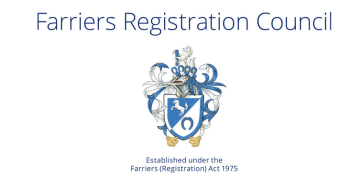Ministers’ plans to build a reserve army of trustees to parachute into failing academies are set out in a rehashed version of a board recruitment scheme abandoned last year.
The Department for Education is testing the water with suppliers about effectively reviving the Academy Ambassadors programme, while tightening eligibility rules and taking more control over who gets support.
The move to bolster the current intervention toolkit comes only two months after the government formally abandoned the schools bill, dashing ministers’ hopes of securing further powers.
The previous trustee recruitment programme, DfE-funded but run by the New Schools Network (NSN), allowed any trust to apply for free tailored support to find business leaders to join its board.
The NSN said it had placed more than 2,000 trustees since 2013, and its latest deal had been due to focus more on boards “in most need”.
But the programme was derailed when the network closed last year after it lost its separate free school support contract. The DfE then reviewed the programme, but issued no details or timescales, leaving trusts in the dark.
The latest proposals suggest the government is leaning towards preserving subsidised recruitment help, but solely for the most in-need trusts – chosen by officials. Other trusts are likely to have to go to the market or manage recruitment themselves.
A new market engagement notice seeks potential providers to recruit trustees to academies with “significant challenges with financial or educational performance”, as identified by DfE regional directors’ teams.
The government has long parachuted board members into failing trusts, but it appears to be the first time it has floated paying a provider to recruit a bank of them.

It also states boards need “volunteers with the expertise and commitment required for effective governance of large charitable organisations” – but does not mention business experience, a key focus of the Academy Ambassadors programme.
The document stresses plans are at an “early stage”, with the DfE reserving the right not to go ahead. It is understood no funding has yet been committed, and precise eligibility criteria not yet developed.
Hannah Stolton, chief executive of Governors for Schools, a governance recruitment charity, said many trusts had been “waiting around” in case subsidised help was restored.
“It’d be good for the market to know there may be money, but only if trusts are in difficulty. Trustees get it – if you want good people, you’re going to have to pay.”
















It is important to separate two distinct user cases . The first is to consider how best to deliver a successful , safe and rapid turnaround in the performance of a failing school.The second is how each trust or school governing body manages search and selection as part of normal succession planning.
Theory and practice suggests that the needs of the first case are best met by a central resource. And for the second case- the needs are best met by entities competing with each other to offer services to schools and academies. The users are perfectly placed to select the service provider that meets their needs and of course pay for the service. A good rule of thumb in life; people and organisations do not value things they do not pay for.Where they pay they will be rightly demanding of the service provider .